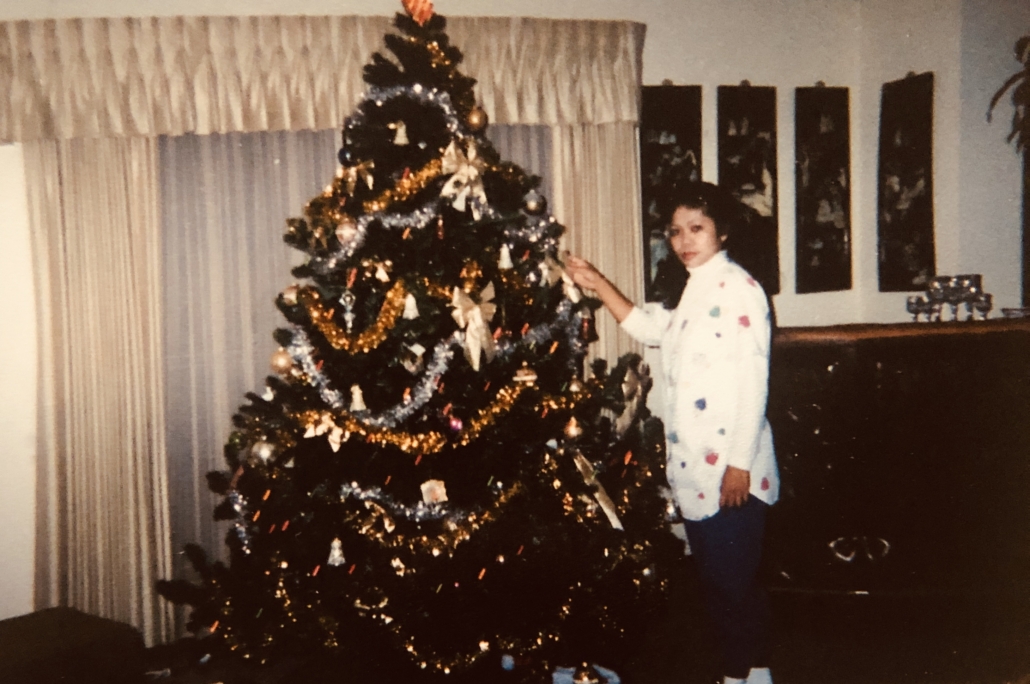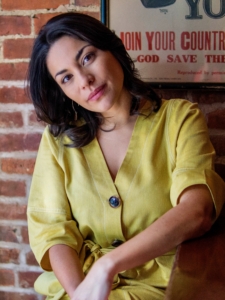We are _________, hear us ___________!
#weclapbecausewecare. New Yorkers stop and give daily thanks and gratitude for coronavirus frontline workers. In Brooklyn, at 7 pm, my neighbors clap and whistle, bang pots. Cars honk. In the apartment across the street, two little girls hang out the window, howling like wolves. On some blocks, I know, this moment is a balm, a release. Solace. I close my eyes.
I haven’t attended a church service in over ten years. But I miss the singing. The early mornings, my voice blending with her voice blending with his voice. Closing my eyes. Come, Thou Fount of every blessing, tune my heart to sing Thy grace. Being together for a shared purpose. A collective. Streams of mercy, never ceasing, call for songs of loudest praise. When friends invited me to their Passover seder two years ago, I was deeply moved as three generations of their family went around the table, reading the Haggadah. You shall not oppress a stranger, for you know the feelings of the stranger, having yourselves been strangers in the land of Egypt. My throat closed.
I miss karaoke bars. American style karaoke bars– rooms full of strangers. Perching on a cracked leather stool in Chinatown while old men read newspapers at the bar beside me. Meanwhile, a stranger sways, microphone in their palms, under twinkling lights. Singing that song, the one we all used to love, the power of those forgotten words rising up from somewhere deep inside–yes. The room fills with our voices, combined.
My mom has a karaoke machine in her living room. Based on this information, you might have correctly guessed that she’s from the Philippines. And like many Filipino-Americans, she is a healthcare worker. Since immigrating to the US in the late eighties, she’s been pulling 12-hour night shifts, at three different hospitals, coming home each day at 8:00 am in pink scrubs, blue scrubs, white scrubs, with tired eyes and a plea: please don’t hug her, not until she’s had a shower, and a nap.

She encouraged us, my siblings and I, to go into the medical field, a trusted path to economic stability for many Filipinos dating back to early twentieth century US colonial rule. I was drawn to education instead, beginning my youth services work when I was in college by receiving “breakfast club” students into the cafeteria an hour and half before school started. Guiding little hands to finish up worksheets as their parents embarked on long commutes. As an eldest daughter, this felt like the most natural thing in the world. Like breathing air. At the Chicago preschool where I became a teaching assistant, we sat cross-legged on the floor, in a circle, infinite. Singing ourselves awake, softly, in the early morning light. Classrooms named after stars, as in, I’m in Procyon with Ms. Shannon and Ms. Zakiya. A few years later, as co-director of a summer program in Brooklyn, we grouped the students into cabins, like a real camp. Forgetting, for a little while, to be cool, the thirteen-year-olds named themselves as if they were nations. Designed their own flags. Entered the cafeteria each morning singing their own anthems. Stomp, stomp, clap, clap, we’re the brolic beasts of Beastalania.
We’re New Yorkers, the ads say now, on TV. Sometimes I leave it on, even when I’m not watching it, to feel connected to something outside my apartment. I’ve been laid off from the job I’d felt lucky to have, and then later, privileged to be able to work from home. Now, I still feel privileged because I don’t have to go outside if I don’t want to. We’re stronger together. Gentle voice overs. Commercials for Apple, Charmin, and Clorox. We’re all in this together. I wish it were true. I wish the 7 pm clapping, the cheering, the lifting of frontline workers felt like hey, they’re playing our song. But it chills me. Because individual people are working hard, against tremendous odds, everyday, in the face of death and grief and guilt. But the country has abandoned them.
News anchors and politicians and writers employ a new language of support. We pick up their words easily. All hail the heroes. They’re on the front lines, they’re at war. The branding of a microscopic virus as The Invisible Enemy. The styling of a nurse technician with no proper protective gear as a foot soldier. She was so brave. She was so strong. But what else? She was probably an immigrant. She was probably black or brown. Most importantly, she probably didn’t need to die. But that’s the thing about the front line, that row of pawns at the front of the chessboard– they’re expendable.
That’s not a glitch in the system– that’s how the system is intended to work. We live in a country where an ever-replenishable pool of “front line” workers toils, in many industries, including the healthcare industry, without sufficient pay, without healthcare, without savings accounts, so that executives like Jeff Bezos can accumulate more wealth than I can even comprehend. He’s gotten even richer this year, even as the New York State attorney general’s office says that Amazon may have violated federal safety standards for its warehouse workers during the COVID-19 pandemic. Meanwhile, an Amazon employee was fired for organizing a protest for workers who are already limiting their own bathroom breaks in order to meet punishing quotas that privilege profit over worker safety.
A smattering of “reopen America” protests cropped up in states like Michigan and Virginia, staged mostly by conservative white workers who can’t Work From Home. These groups are backed by right wing donors and their screaming faces were broadcast continuously by right wing media outlets. Because employers are solely responsible for covering the cost of unemployment payments, many business owners support calls to reopen even when health experts say it’s too early. You’re not eligible for unemployment if you refuse a job offer or you aren’t actively looking for work. Even if your work puts you face to face with “The Invisible Enemy”– for which there is still no treatment, no vaccine, no widespread testing or contact tracing.
So, forfeit your check or take a deadly risk, all so that this administration can get the unemployment numbers down ahead of the 2020 election? This proposition is a tremendous exercise in cognitive dissonance– we are dealing with a highly contagious virus. The virus will not proceed according to political strategy. The virus will proceed according to its viral replication process. Attachment, penetration, uncoating, replication, assembly, and release. Attachment, penetration, uncoating, replication, assembly, and release. Surely the deaths of tens of thousands of Americans are also bad for the economy, but these numbers can be downplayed, styled as the best case scenario, blamed on China.
Even knowing the risks, workers will choose their check, if they can. Because rent is due on the 1st. Because they’re sending money to family back home. Because the health insurance that their children and partner depend on is tied to their job. Health insurance companies are doing absolutely fine, by the way, and several have enjoyed profits despite record unemployment, and, as reported by The Intercept, successfully lobbied democratic representatives in Congress for subsidies to protect them.
At the same time, out-of-work volunteers are delivering groceries to their out-of-work neighbors. New mutual-aid projects, many of them building on the work of existing groups, are working to ensure that everyone gets fed during this crisis. As Jia Tolentino writes in The New Yorker:
“Historically, in the United States, mutual-aid networks have proliferated mostly in communities that the state has chosen not to help.”
Free breakfast programs, like the one my students needed, were not adopted by the American public school system until the Black Panther Party did it first. When stories of regular Americans coming through for each other are covered on the nightly news today, hearts are warmed– see, people are good. People help each other. Yes, but why must they go through such extraordinary lengths to do so in the first place?
It was on the local news I learned that the Thunderbirds and the Blue Angels would do a fly over of New York City the next day to thank first responders, essential personnel, and military service members as we collectively battle the spread of COVID-19. According to the Washington Post, flying warplanes low over Manhattan (great idea! that won’t scare anyone) cost at least $60,000 per hour. The most recent census data places the median household income in the United States at $56,516 per year.
It was loud. And it did scare me. I couldn’t see anything from my window. Only my neighbor across the street, looking up.
This multi-city flyover tour has been branded Operation America Strong. That’s what they called an operation designed to honor the people who are so essential to our economy that many of them don’t get paid a living wage. To honor workers who are not eligible to receive coronavirus treatment, testing, or financial aid during this crisis. To salute them like the good foot soldiers that they are. Convenient that they never enlisted, were never drafted, and the sickest part of this nationalistic word association game we’re playing is that not even being an actual veteran will protect you. Am I supposed to swell with pride for my country as fighter jets fly over a city with such deeply entrenched disparities that black people are dying at twice the rate of white people? A country that in one breath praises doctors and factory workers as our saviors and in the next, condemns them to death by denying the very science that could save them?
America. Strong. Is that who we are? Because we obviously aren’t all in this together, and the enemy isn’t invisible, and it isn’t a virus, and it isn’t China. It’s the systems that allow Americans to make exorbitant profits off the labor of workers who could not cover a single unexpected bill with savings. Even during a global health crisis, perhaps especially during a global health crisis– and that is a system that does not care if you live or die. This did not begin when this outbreak did.
It’s 7 pm and my neighbors are clapping. What I long for is the part that never comes. The part where we come together, all the strangers, for real. We set aside the language of war, the way we have been set aside. We consider that it could be morning soon. That the thin, early light will wash our grief away. Will we ever be able to do it? Or will we stand here, clapping, as we plunge deeper, into darkness?
Shannon C.F. Rogers is a writer of young adult novels and plays. Her work has appeared in Bodega Magazine and on stage with Tricklock Company, Lady Luck Productions, and with Vintage Theater Collective’s Sonnetfest. She earned her B.A. in Creative Writing from the University of New Mexico in 2009 and is currently pursuing her MFA in Young Adult at Antioch University Los Angeles, where she serves as an editor and blogger on Lunch Ticket. An educator with a passion for literacy, Shannon has served school communities in New York, Chicago, and her hometown of Albuquerque.





